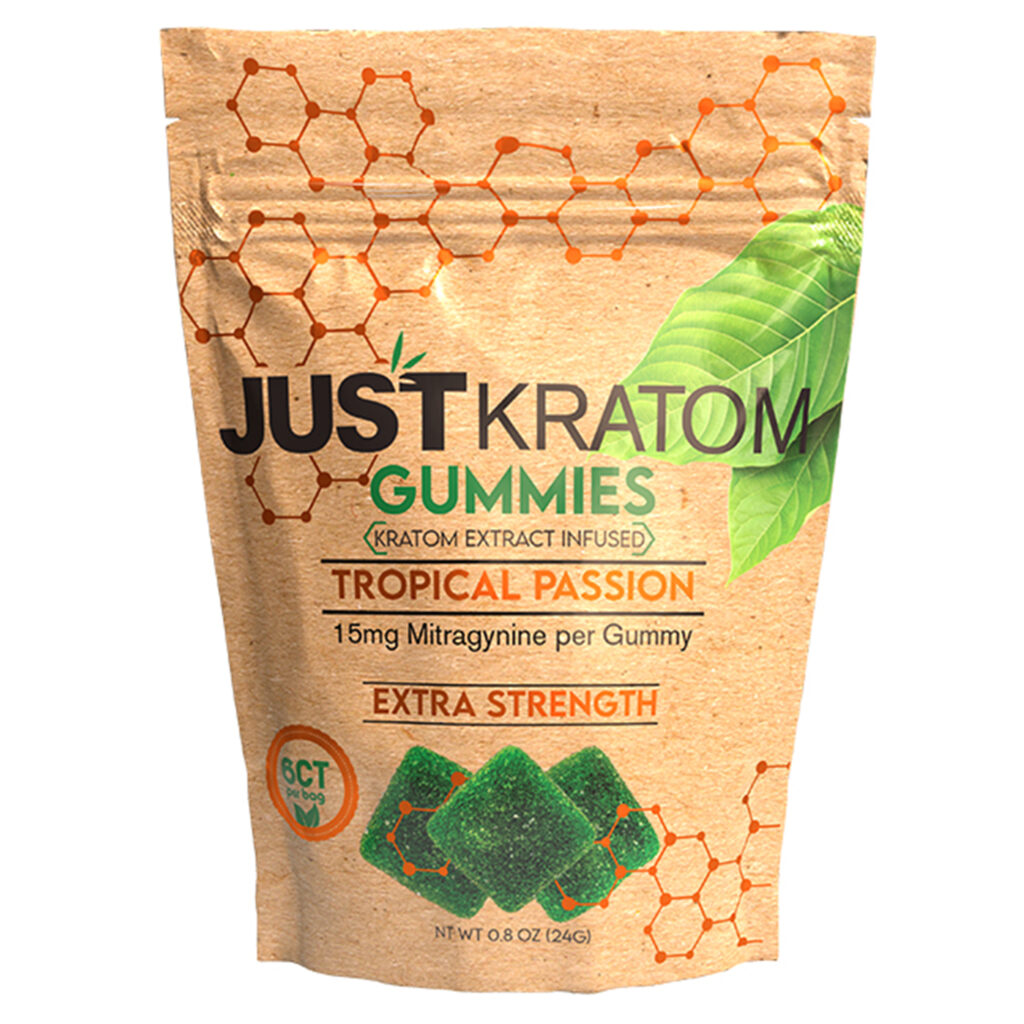Federal Legality
Navigating the legal landscape surrounding kratom can be confusing, especially with the increasing popularity of products like gummies. Federal legality plays a crucial role in determining whether these products are available and safe to consume in your area.
Current Status
Kratom is currently not federally illegal in the United States. It is classified as a “herbal supplement” by the Food and Drug Administration (FDA), which means it is not regulated like pharmaceuticals. However, individual states have the authority to regulate or ban kratom within their borders. Some states have outright bans on kratom products, while others have restrictions on sales or possession.
Proposed Legislation
Proposed legislation regarding kratom at the federal level has been introduced periodically. These proposals aim to either classify kratom as a controlled substance or establish regulations for its production, distribution, and sale. While there haven’t been any major federal legal changes affecting kratom recently, it is important to stay informed about ongoing legislative developments that could impact its legal status.
It is crucial to check the specific laws and regulations of your state regarding kratom gummies to ensure compliance. Websites of state government agencies or legal databases can provide up-to-date information on kratom legality in your area.
State-Level Regulations
Understanding the legal status of kratom gummies begins with recognizing that federal law doesn’t dictate their availability in every location. While kratom itself is not currently federally illegal, states hold the power to establish their own regulations, leading to a patchwork of legal landscapes across the country.
Legal States
Understanding the legality of kratom gummies in your area requires researching state-level regulations. Each state has its own laws regarding kratom, ranging from complete bans to no restrictions at all. Some states have chosen to regulate sales or possession of kratom products, while others allow them freely.
To determine the legal status of kratom gummies in your specific location, consult reliable sources like state government agency websites or legal databases. These resources provide up-to-date information on kratom laws and regulations within each state.
Restricted States
State-level regulations play a crucial role in determining the legality of kratom gummies within their borders. While kratom is not federally illegal, individual states have the authority to ban it or impose restrictions on its sale and possession.
Some states have enacted complete bans on kratom products, making them entirely illegal within their jurisdictions. Others have implemented regulations that limit sales to adults, require registration of vendors, or restrict the potency of kratom products.
The patchwork of state-level regulations creates a complex legal landscape for consumers seeking kratom gummies. It is essential to research the specific laws and regulations of your state to ensure compliance and avoid potential legal consequences.
Banned States
State-Level Regulations, Banned States

While kratom is not federally illegal in the United States, individual states have the authority to regulate or ban it. This has resulted in a patchwork of laws across the country, making it important for consumers to understand the legal status of kratom in their specific location.
- Alabama
- Arkansas
- Indiana
- Rhode Island
- Tennessee
- Vermont
Local Ordinances
The legal status of kratom gummies can be confusing due to varying regulations across states. While kratom is not federally illegal, individual states have the power to enact their own laws regarding its sale, possession, and use. This means that what’s legal in one state may be strictly prohibited in another.
City and County Laws

Understanding the legality of kratom gummies in your area requires careful research due to the varying regulations across states. While kratom is not federally illegal, individual states have the authority to enact their own laws regarding its sale, possession, and use. This means that what’s legal in one state may be strictly prohibited in another.
- It is crucial to check your state’s specific laws regarding kratom gummies to ensure compliance.
- Reliable sources for this information include state government agency websites or legal databases.
- Remember that the legal landscape surrounding kratom can change, so it’s essential to stay informed about any updates or amendments to local regulations.
By taking the time to understand your state’s specific laws, you can make informed decisions about consuming kratom gummies and avoid potential legal consequences.
Enforcement Variations
Navigating the legal landscape surrounding kratom can be confusing, especially with the increasing popularity of products like gummies. Federal legality plays a crucial role in determining whether these products are available and safe to consume in your area.
Kratom is currently not federally illegal in the United States. It is classified as a “herbal supplement” by the Food and Drug Administration (FDA), which means it is not regulated like pharmaceuticals. However, individual states have the authority to regulate or ban kratom within their borders. Some states have outright bans on kratom products, while others have restrictions on sales or possession.
Proposed legislation regarding kratom at the federal level has been introduced periodically. These proposals aim to either classify kratom as a controlled substance or establish regulations for its production, distribution, and sale. While there haven’t been any major federal legal changes affecting kratom recently, it is important to stay informed about ongoing legislative developments that could impact its legal status.
It is crucial to check the specific laws and regulations of your state regarding kratom gummies to ensure compliance. Websites of state government agencies or legal databases can provide up-to-date information on kratom legality in your area.
Understanding the legal status of kratom gummies in your area requires researching state-level regulations. Each state has its own laws regarding kratom, ranging from complete bans to no restrictions at all. Some states have chosen to regulate sales or possession of kratom products, while others allow them freely.
To determine the legal status of kratom gummies in your specific location, consult reliable sources like state government agency websites or legal databases. These resources provide up-to-date information on kratom laws and regulations within each state.
- Alabama
- Arkansas
- Indiana
- Rhode Island
- Tennessee
- Vermont
The legal status of kratom gummies can be confusing due to varying regulations across states. While kratom is not federally illegal, individual states have the power to enact their own laws regarding its sale, possession, and use. This means that what’s legal in one state may be strictly prohibited in another.
Understanding the legality of kratom gummies in your area requires careful research due to the varying regulations across states. While kratom is not federally illegal, individual states have the authority to enact their own laws regarding its sale, possession, and use. This means that what’s legal in one state may be strictly prohibited in another.
- It is crucial to check your state’s specific laws regarding kratom gummies to ensure compliance.
- Reliable sources for this information include state government agency websites or legal databases.
- Remember that the legal landscape surrounding kratom can change, so it’s essential to stay informed about any updates or amendments to local regulations.
By taking the time to understand your state’s specific laws, you can make informed decisions about consuming kratom gummies and avoid potential legal consequences.
Potential Legal Issues
Navigating the legal landscape surrounding kratom can be complex, especially with the rise of products like gummies. Federal legality plays a key role in determining whether these products are accessible and safe to consume in your area.
Mislabeling
Kratom is currently not federally illegal in the United States. It is classified as a dietary supplement by the FDA, meaning it isn’t regulated like pharmaceuticals. However, individual states have the authority to regulate or ban kratom within their borders.
This can lead to confusion as what is legal in one state might be illegal in another. It is essential for consumers to understand the specific laws regarding kratom in their area to avoid potential legal issues.
Mislabeling of kratom products is a significant concern. Products marketed as “kratom gummies” may not accurately reflect their ingredients or content. This can have serious consequences, especially for individuals who are unaware of the risks associated with consuming mislabeled products.

Consumers should always exercise caution when purchasing kratom gummies or any other kratom product. Verify the source of the product and carefully examine the label to ensure it accurately reflects the ingredients and potency.
Reporting suspected cases of mislabeling to relevant authorities, such as the FDA or state health agencies, is crucial for protecting public health and safety.
Sale to Minors
Potential legal issues arise when selling kratom gummies to minors due to varying state laws and ethical considerations.
- State Laws: Some states have age restrictions on the purchase of kratom products, including gummies. Selling kratom gummies to a minor could violate these state laws and result in legal consequences for the seller.
- Ethical Considerations: Kratom’s effects can vary from person to person, and its long-term health impacts are not fully understood. Selling kratom gummies to minors raises ethical concerns about potentially exposing them to unknown risks without their full understanding or parental consent.
Quality Control Concerns
Potential quality control concerns arise with kratom gummies due to the lack of rigorous federal regulation in the supplement industry.
Unlike pharmaceuticals, kratom gummies are not subject to the same strict manufacturing and testing standards set by the FDA. This means there’s a higher risk of inconsistencies in potency, ingredient accuracy, and product safety.
Consumers should exercise caution when purchasing kratom gummies and be aware of potential quality control issues:
- Potency Variability: Kratom extracts used in gummies may have varying levels of active compounds, leading to unpredictable effects.
- Ingredient Accuracy: Labels might not accurately reflect the ingredients used or contain undisclosed additives.
- Contamination Risks: Manufacturing processes lacking proper hygiene and quality control measures can lead to contamination with harmful bacteria, mold, or pesticides.
To minimize risks, consumers should purchase kratom gummies from reputable brands known for their transparency and commitment to quality. Always read labels carefully and be aware of potential inconsistencies in potency or ingredient accuracy.
Resources for Further Information
For more detailed information regarding kratom legality in your state, consult the following resources:
- State Government Agency Websites: Check the websites of your state’s Department of Health or Agriculture for specific regulations on kratom products.
- Legal Databases: Access legal databases such as Westlaw or LexisNexis to find relevant case law and statutory provisions related to kratom in your state.
- Kratom Advocacy Organizations: Organizations like the American Kratom Association provide resources and information on kratom laws at the state level.
Government Websites
For more detailed information regarding kratom legality in your state, consult the following resources:
- State Government Agency Websites: Check the websites of your state’s Department of Health or Agriculture for specific regulations on kratom products.
- Legal Databases: Access legal databases such as Westlaw or LexisNexis to find relevant case law and statutory provisions related to kratom in your state.
- Kratom Advocacy Organizations: Organizations like the American Kratom Association provide resources and information on kratom laws at the state level.
Kratom Advocacy Groups
For more detailed information regarding kratom legality in your state, consult the following resources:
* **State Government Agency Websites:** Check the websites of your state’s Department of Health or Agriculture for specific regulations on kratom products.
* **Legal Databases:** Access legal databases such as Westlaw or LexisNexis to find relevant case law and statutory provisions related to kratom in your state.
* **Kratom Advocacy Organizations:** Organizations like the American Kratom Association provide resources and information on kratom laws at the state level.
Buy Kratom Gummies made for quality and value
- Why Sculptra Is Gaining Popularity In Surrey - June 29, 2025
- What’s The Worst Thing That Can Happen With Lip Fillers? - June 28, 2025
- What Is The Best Filler For The Temple Area - June 25, 2025

